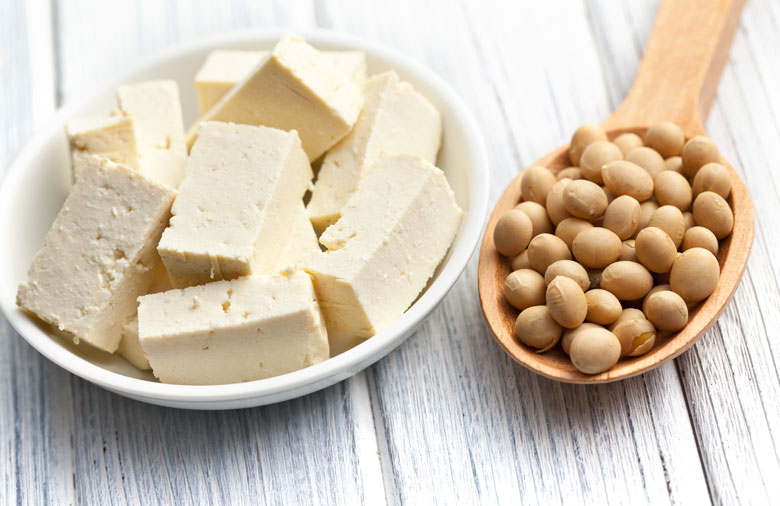Several research studies show that eating soy foods can help reduce a variety of health conditions, including lowering the risk of heart disease and osteoporosis, and helping prevent hormone-related cancers, such as breast, prostate and uterine cancer.
While people in Asia have been eating soy foods for more than 5,000 years, little did they know that soy foods were loaded with isoflavones and phytoestrogens. Those two chemicals act like estrogen in the body. Soy is also loaded with other nutrients, according to the research.
Other studies suggest that soy protein may reduce heart disease risk by lowering LDL, the bad cholesterol. In a Japanese study of nearly 5,000 men and women, those who ate the most soy had the lowest cholesterol. Other studies show that soy protein can also lower total cholesterol by 9% if they eat between 31-47 gram of soy protein each day.
To make that easier to understand, 4 ounces of firm tofu provide 13 grams of soy protein, one soy burger has up to 12 grams and an 8-ounce glass of milk gives 10 grams.
Studies show that Asian women who eat a diet rich in soy have a lower risk of breast cancer. Studies in Western women found a 14% reduction in breast cancer risk. Research also showed that men who ate more soy proteins had a lower risk for prostate cancer.
More research showed that soy protein intake might be linked to helping reduce osteoporosis in women approaching menopause. Soy protein also helped reduce hot flashes and night sweats in women during menopause.
According to the North American Menopause Society, the following daily amount of isoflavones helps certain health conditions:
- 50 mg to reduce cholesterol
- 40-80 mg to improve blood pressure
- 50 mg for improved bone health
- 40-80 mg to reduce hot flashes
Countless studies have been linked to the health benefits of soy and recommendations related to eating soy proteins. To see a complete list, read the results of the studies from the University of Maryland Medical Center.
Source
http://umm.edu/health/medical/altmed/supplement/soy
Related Articles

Join the Discussion
0 Comments